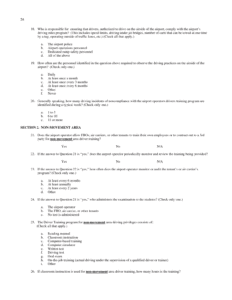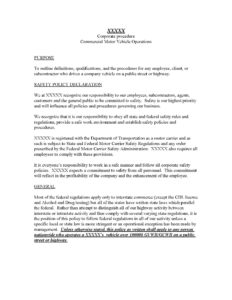For truck drivers, the road isn’t just a path to a destination; it’s a meticulously tracked journey for various reasons, from tax deductions to operational efficiency. Keeping an accurate record of every mile driven is not just a good practice, it’s often a legal and financial necessity. Whether you’re an independent owner-operator or part of a larger fleet, understanding and documenting your mileage correctly can significantly impact your bottom line and ensure compliance with regulations.
Navigating the complexities of mileage tracking can feel overwhelming, especially after a long day behind the wheel. That’s where a well-designed truck driver mileage log template becomes an invaluable tool. It simplifies the process, ensures you capture all essential information, and helps you stay organized, freeing you up to focus on what you do best: driving.
Why Every Truck Driver Needs a Reliable Mileage Log
Accurate mileage logging is far more than just jotting down numbers; it’s a critical component of a truck driver’s financial and regulatory compliance strategy. The Internal Revenue Service (IRS) requires detailed records for business expense deductions, including vehicle-related costs. Without a clear and comprehensive log, claiming legitimate deductions for fuel, maintenance, and vehicle depreciation can become incredibly challenging, potentially leading to missed savings or even audits.
Beyond tax purposes, a precise mileage log is essential for managing your business effectively. It allows you to monitor fuel consumption patterns, identify potential inefficiencies in your routes, and accurately calculate per-mile operating costs. This data is invaluable for making informed decisions about pricing your services, planning future trips, and budgeting for the unexpected.
For many interstate drivers, the International Fuel Tax Agreement (IFTA) is another significant reason to maintain impeccable mileage records. IFTA requires carriers to report fuel usage and miles driven in each jurisdiction to ensure they pay the correct fuel taxes. A detailed log broken down by state or province is absolutely crucial for accurate IFTA reporting, helping you avoid penalties and ensuring fair tax contributions across all the areas you operate in.
Adopting a robust truck driver mileage log template can transform this potentially tedious task into a streamlined process. Instead of starting from scratch each time, a template provides a consistent framework, guiding you to capture all necessary data points. This consistency minimizes errors and ensures that your records are always audit-ready, whether for tax purposes or IFTA compliance.
Using a template also ensures uniformity across your records. This is particularly beneficial if you ever need to revisit past trips or if multiple drivers are using the same logging system. It creates a standardized approach, making data retrieval and analysis much simpler over time. A good template acts as a checklist, reminding you of every piece of information you need to record before moving on to your next delivery.
Key Information to Capture in Your Mileage Log
- Date of the trip
- Start and end odometer readings
- Starting and ending locations (city, state)
- Total miles driven for the trip
- Purpose of the trip (e.g., hauling cargo for client X, personal use)
- Fuel purchased during the trip (gallons, cost, location)
- Any tolls incurred
- Driver’s signature for verification
Choosing the Right Truck Driver Mileage Log Template for Your Needs
With a variety of options available, selecting the most suitable truck driver mileage log template is a personal decision that can significantly impact your daily operations. Some drivers prefer the tangible feel of a physical notebook and pen, finding it easier to quickly jot down details as they go. Others might lean towards digital solutions, appreciating the convenience of automatic calculations and cloud storage.
Paper templates are straightforward and don’t require any technology beyond a writing instrument. They are generally inexpensive and readily available. However, they can be prone to loss or damage, and transferring the data for reporting often means manual entry into a spreadsheet or software, which introduces a risk of transcription errors.
Digital templates, often found as printable PDFs, editable spreadsheets, or integrated into mobile apps, offer several advantages. Spreadsheet templates, for instance, can automatically calculate total miles, fuel efficiency, and even categorize expenses, saving considerable time. Mobile apps can often leverage GPS to automatically log mileage, though this might come with a subscription cost and requires consistent battery life.
When evaluating different templates, consider how easily you can customize it to fit your specific reporting requirements or personal preferences. Some owner-operators might need additional fields for specific expenses or notes about their cargo. A flexible template allows you to add or remove sections as needed, ensuring it serves your unique business model effectively.
Ultimately, the best template is one that you will consistently use and find easy to maintain. It should integrate seamlessly into your routine without adding unnecessary burden. By choosing a template that aligns with your operational style, you are setting yourself up for accurate record-keeping, streamlined tax preparation, and greater financial control over your trucking business.
Staying on top of your mileage records might seem like a small detail in the grand scheme of truck driving, but its impact on your financial health and compliance is substantial. Embracing a systematic approach to logging your miles, whether through a simple paper form or a sophisticated digital application, empowers you to take full advantage of legitimate deductions and meet all regulatory obligations without stress.
By diligently tracking every mile and expense, you are not just fulfilling a requirement; you are building a robust financial history for your business. This detailed record-keeping provides clarity, protects your assets, and ultimately contributes to a more profitable and well-managed career on the open road. Start today by finding a method that works for you and make accurate mileage logging an integral part of your professional routine.

